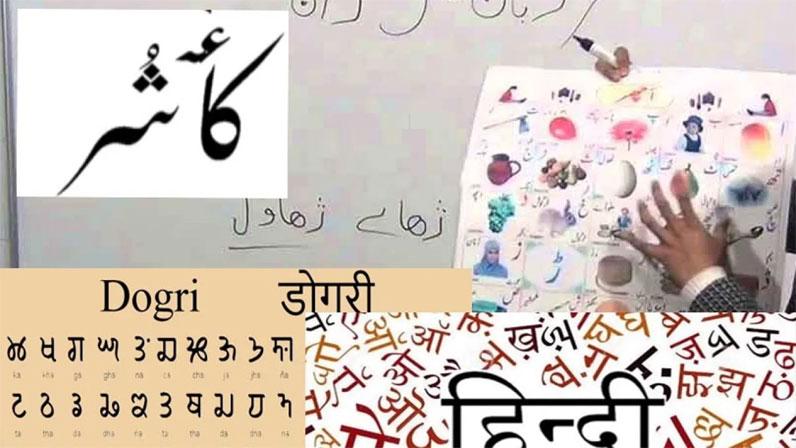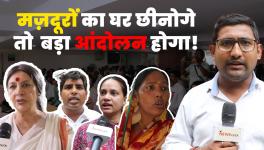‘Introduction of New Languages in Jammu and Kashmir an Attempt to Divert Public Attention’

Image Courtesy: Internet
The inclusion of Kashmiri, Dogri and Hindi as new official languages in the Union Territory of Jammu and Kashmir has received strong criticism from several quarters, including members of minority communities, activists and political leaders. On September 2, the Union Cabinet approved the Jammu and Kashmir Official Languages Bill, 2020, under which Kashmiri, Dogri and Hindi were added as three new official languages in the UT, taking the total number of official languages to five, including the already existing English and Urdu.
The bill is said to have received the Cabinet’s nod at a meeting presided by PM Narendra Modi and is set to be introduced in the upcoming Monsoon Session of Parliament. While the decision was welcomed by the Dogras and Kashmiris in Jammu who thanked the central government for “fulfilling their long-pending demand”, the minority Sikh community have protested against the bill.
Small protests were carried out by Sikh community across J&K, which comprise 2.03% of the total population in the UT as per the 2011 Census, to demonstrate their resentment for not including Punjabi. Speaking to NewsClick, All Party of Sikh Coordination Committee (APSCC) chairman, Jagmohan Raina said that they are demanding that Punjabi also be included as one of the official languages. "Just because of coronavirus, we couldn’t organise a huge protest. Nonetheless, there is a strong resentment among people against the bill. The decision is anti-minority. Punjabi is spoken widely in Jammu and Kashmir with different dialects used by Paharis, Gujjars and Sikhs and yet, it has not been included as an official language which clearly reveals its discriminatory nature.”
Komal Singh, who is a resident of J&K and is currently pursuing PhD, said that almost 4 lakh Sikhs of J&K identify themselves with Punjabi. “If the decision is to make J&K a more inclusive region then why haven’t they considered Punjabi as one of the official languages? Punjabi has a long history in J&K’s politics and culture. and thus, it cannot be ignored. They should include all local languages if they are widening the horizon.”
Also read: Jammu: Exclusion of Languages Upsets Sikh Community
Political leaders have also questioned the cabinet’s decision to introduce new languages amid the pandemic. Communist Party of India (Marxist) leader M Y Tarigami termed the bill as “divisive and a political stunt” by the right-wing government. “The Centre should have waited for the political process to start in Jammu and Kashmir and the Assembly could have decided and discussed it. When you are issuing something new about languages, you have to take different section of population, regions, sub regions into consideration and they should be allowed to express their view and then a decision should be taken. The right-wing government has nothing to offer to the people of Jammu and Kashmir, so they are creating confusion. This is a political stunt to create confusion and divide the ranks of the people and divert their attention from core issues.”
Meanwhile, the Gujjar leaders have also strongly resented the move of Union Cabinet to neglect the Gojri language and have insisted upon declaring it as one of the official language. As per the 2011 Census, 1.5 million (11.9% of total population) Gujjar and Bakarwals reside in Jammu, Kashmir and Ladakh of which 810,800 Gujjar and Bakarwals live in Jammu, making around 54% of the total tribal population.
The Gujjar leaders have given a joint statement pressing upon the demand to include Gojri language, signed by former minister Taj Mohiuddin and former MLA Mohd Akram, among others.
Inclusion of Hindi Draws Flak
The introduction of Hindi as one of the official languages has also elicited various reactions from people who are questioning its need. Talking about the inclusion of Hindi, Singh said that people of Jammu and Kashmir are not majorly Hindi speaking people. In such circumstances its inclusion is questionable.
“While local languages like Pahari, Gojri and Punjabi are not included, Hindi—which is not even a locally spoken language—is now an official language. The marginalised communities are feeling discriminated as the native languages of their region have not found a place as an official language,” she added.
A research scholar at the Central University of Jammu, Hakim Singh said that Hindi is a foreign language to Jammu and Kashmir. “We, the people of Jammu, have hardly any affiliation or love for Hindi. This is nothing but an attempt for appropriating Jammu’s sentiment and siding with the Centre.”
‘Attempt to Marginalise Urdu’
The bill is also seen as an attack on the “uniqueness” of Urdu language, which until now was one of the two official languages of the erstwhile state including English. Urdu was recognised as an official language of Jammu and Kashmir by the Dogra ruler since 1889. Before Urdu, Persian was the official language of the erstwhile state for around nearly three centuries. The language also served as the primary language of communication between Dogra rulers and the British. Although, there are other spoken languages in the UT including Dogri, Kashmiri, Gojri, Pahari, Punjabi and Balti but Urdu was attributed as a common communication link.
As per the Department of Information and Public Relations, around 59 Urdu newspapers are published from Kashmir division and 29 from Jammu division. Whereas, there are 39 Urdu weeklies published from Jammu region in comparison to 29 from Kashmir.
Commenting on the decision, executive editor of Kashmir Times, Anuradha Bhasin, said, “Urdu was the main official language. So is this another attempt to dilute the significance and importance of the Urdu language is the question. For instance, in the National Education Policy, I don’t find the mention of Urdu anywhere. Whereas Urdu is one of the richest and universally spoken language (in the region).”
“It is a step towards eliminating Urdu and getting Hindi language to the fore which has the political patronage from mainland India,” Jameel, professor of English at Kashmir University.
Also read: Speculations of Name Changing in Kashmir a 'Cultural Crackdown'
Get the latest reports & analysis with people's perspective on Protests, movements & deep analytical videos, discussions of the current affairs in your Telegram app. Subscribe to NewsClick's Telegram channel & get Real-Time updates on stories, as they get published on our website.
























